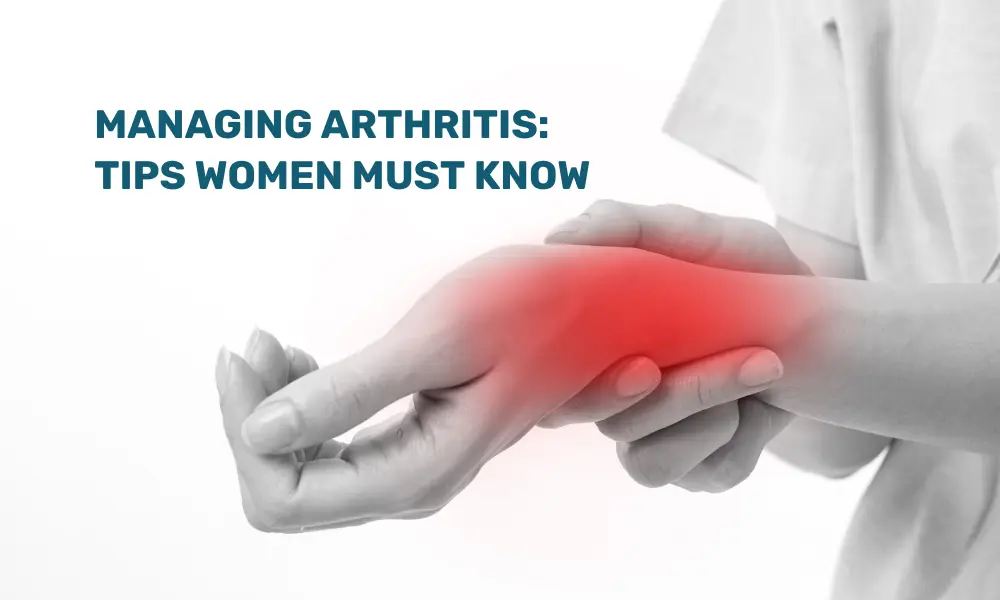Often, when we get up from bed, especially in the morning, a familiar stiffness in our back makes our movement uncomfortable. Such pain may force us to stretch before moving from the bed. These pains may be associated with arthritis.
Similarly, a simple motion of putting on a shirt may feel laborious as one may experience a strange in shoulders. Such symptoms can often be overlooked or attributed to fatigue, leaving many unaware that they may be experiencing the early signs of arthritis.
What is Arthritis?
Arthritis, often seen as an ailment in older adults, is increasingly impacting even the younger generations, particularly women. It is a common condition that causes pain, swelling, joint inflammation, stiffness, and limited movement. As awareness grows, it becomes vital to understand the symptoms, causes, and management strategies for this often debilitating disease.
Our bones and joints are important for our mobility and overall well-being. Arthritis is a condition that causes joint inflammation, causing pain, and stiffness in our joints, making our everyday tasks difficult. While arthritis affects people globally, it is more common in women, mainly due to hormonal factors.
Causes of Arthritis in Women:
Hormonal changes, along with genetics, obesity, and inactivity, are driving an increasing number of young women, even in their 20s and 30s, to be diagnosed with arthritis.
-
Genetics: Family history can increase susceptibility to various types of arthritis, making some women more prone to developing the condition.
-
Hormonal differences: Women experience hormonal fluctuations throughout their lives, especially during puberty, menstruation, pregnancy, and menopause. These changes can influence the onset and severity of arthritis.
-
Inactivity: A sedentary lifestyle can weaken muscles and joints, contributing to joint pain and stiffness.
-
Obesity: Excess weight strains our joints, particularly weight-bearing ones like the knees and hips, increasing the risk of osteoarthritis.
-
Autoimmune disorders: Conditions like rheumatoid arthritis disproportionately affect women, leading to systemic inflammation that can severely impact joint health.
Proactive steps for managing arthritis:
While there is no cure for arthritis, early intervention and lifestyle changes can slow down its progression and ease symptoms. Here are some strategies to consider:
-
Maintain a healthy weight: Reducing excess weight can alleviate pressure on joints, particularly in the lower body. Being overweight can increase knee discomfort, making a person less mobile. Therefore, one must control the body weight and try to remain closer to the ideal body weight.
-
Exercise regularly: One must keep moving and indulge in low-impact activities like swimming, walking, and cycling. This can help strengthen muscles and improve joint flexibility without putting too much strain or pressure on them. Regular exercises can minimize the chances of developing arthritis.
-
Manage blood sugar levels: Keeping blood sugar levels stable can reduce inflammation and help manage symptoms.
-
Quit Smoking! It can make symptoms of RA worse and make it challenging to manage arthritis.
-
Consult a specialist: Consult a rheumatologist to explore non-surgical treatments that can effectively manage arthritis symptoms and delay progression.
-
Stay informed: Awareness is critical. Educate yourself about the condition and be proactive about monitoring any changes in your joint health.
Arthritis can make it challenging for individuals to lead a normal life. It is, therefore, vital for us to take the necessary steps to manage this condition. While the above tips can help alleviate the symptoms of arthritis, it is important to consult a rheumatologist in case of experiencing any related symptoms.





